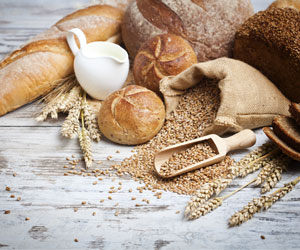Highlights
- The newly developed variety of wheat has ten times more fiber than the regular wheat.
- Scientists identified that reducing two enzymes in wheat, increases the amount of amylose, a type of fiber.
- Products made from high-amylose wheat can help reduce blood glucose levels and inflammation.
Normally, food is digested in the small intestine. This starch reaches the large intestine and disintegrates there, which reduces the speed with which glucose reaches the blood, said Dr. Regina Ahmed, principal research scientist, Commonwealth Scientific and Industrial Research Organisation (CSIRO).
High-amylose Wheat: How was it made?
The research team initially identified two enzymes that when reduced in wheat, increase the amount of a polysaccharide known as amylose.
"From there, we used a conventional breeding approach, not GM techniques, and managed to increase the amylose content of wheat grain from around 20 or 30 percent to an unprecedented 85 percent," said Dr. Ahmed.
High-amylose starches are more resistant to hydrolysis or digestion than conventional starches. Resistant starch (RS) passes through the oral, gastric and small intestinal phases of digestion. The microbes in the large intestine ferment the fiber and releases short-chain fatty acids including butyrate, which contributes to enhanced colonic function.
Dietary Possibility to Tackle Type 2 diabetes in India
Imparting nutritional benefits to staple foods like wheat would have a meaningful impact on public health, without the need for making major dietary changes.
“There is a rapid spread of lifestyle diseases across the world. Type 2 diabetes is now a global health challenge with a mounting incidence in most nations, including developing countries like India,” said Dr. Ahmed.
She added, “India is one of the leading producers of wheat and almost all the wheat that India produces is consumed domestically. This means that wheat with enhanced nutritional quality can serve as an excellent vehicle for delivery of health benefits to consumers.”
Reference
- Ahmed Regina, Pierre Berbezy, Behjat Kosar-Hashemi, Suzhi Li, Mark Cmiel, Oscar Larroque, Anthony R. Bird, Steve M. Swain, Colin Cavanagh, Stephen A. Jobling, Zhongyi Li and Matthew Morell. 'A genetic strategy generating wheat with very high amylose content.' Plant Biotechnology Journal (2015). doi: 10.1111/pbi.12345.
Source-Medindia
















